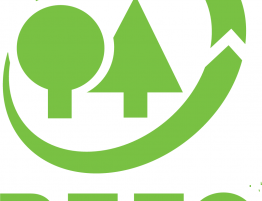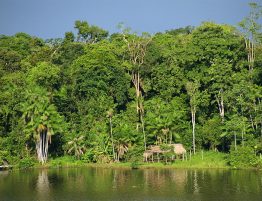
The European Union created new legislation intended to combat the trade in illegal timber back in 2010. Known as the “EU Timber Regulation”, this measure prohibited illegally harvested wood from being sold on the European market. It outlined how operators would need to be diligent when assessing the risk of purchasing illegal products from their suppliers. This would become easier, as provisions would be put in place to facilitate the traceability of timber and timber products within the European Union, from the time they first entered the EU market. The new regulation covers a diverse range of timber products from paper pulp to wood flooring.
The regulation (Regulation (EU) No 995/2010 of European Parliament and of the Council of 20 October 2010 laying down the obligations of operators who place timber and timber products on the market), came into force earlier this year on March 3rd 2013. All member states have been affected and the EU Timber Regulation covers a majority of wood products, including paper and pulp. Operators must now be able to verify that all timber originates from legal sources. So, this involves ensuring that records are kept, as well as all details of their suppliers. If they cannot confirm that their timber is from an approved source, they will face sanctions.
Illegal timber accounts for 30% of the global timber market
The international police organisation INTERPOL estimates that illegal logging supplies up to 30% of timber in the global market. It costs businesses over £13 billion (€15bn or $20 billion) per year. So, the European Union has taken action in response to demands from various stakeholders and EU Member States who had all called for measures to be introduced that would put an end to illegal timber entering the European Union. The new EU Timber Regulation and other similar laws are now having a significant impact on the world’s timber producing nations.
Although the European Union adopted this law back in 2010, it has taken until March 2013 for it to come into force. The reason being, that private companies and Member States have needed sufficient time to put effective measures in place.
Due Diligence System
Operators are now required to exercise “due diligence” under the EU Timber Regulation, using the due diligence system (DDS). This means that those who originally place a timber product on the EU market are responsible for the traceability of that wood. Law now requires them to “make every effort” to ensure that the timber they trade in is legal under the new regulation.
The DDS is made up of three elements. These consist of the following:
- Access to all information: This includes information on suppliers’ details, quantity and the country of origin.
- Companies must evaluate whether the timber has been produced in accordance with the laws in the country of origin.
- Companies must also take all necessary steps to ensure that timber is legal, if there is any doubt about its origin.
However, the new EU Timber Regulation also applies to traders who buy or sell any timber that is already on the EU market. They must also be able to ensure the traceability of the timber and keep “adequate information”.
The EU has stated that it has a responsibility to safeguard the world’s most valuable remaining forests and those who are reliant upon them. Illegal logging has severe consequences in an environmental, economic and social sense. The term “illegal logging” refers to any timber harvested that breaches the regulations or laws in the country of origin.
Project Leaf
The United Nations and INTERPOL, the international policing agency, launched Project Leaf in 2012. Project Leaf (Law Enforcement Assistance for Forests), is a climate initiative created to tackle organised forest crime and illegal logging. Nearly 200 people involved in an international, organised illegal logging operation were arrested in February (2013). The three month operation involved 12 countries in South and Central America. This resulted in a total of £5.2 million worth of timber being seized.
According to The World Wide Fund for Nature (WWF), Central Africa and South East Asia are hotspots for illegal timber trading. They noted that Hong Kong and China processed a significant amount of this illegal timber before shipping it off to Europe and the UK in particular.
Although many environmental organisations have welcomed the new EU timber Regulation as something of a landmark piece of legislation, the WWF pointed out that the legislation doesn’t address forest management systems. Whilst a timber product may be legal under the new regulation, that doesn’t mean that it has actually been produced in an ecologically sound way in the first place.
Unfortunately, the demand for cheap wood has driven the illegal timber trade. The EU Timber Regulation now requires companies to ensure that they are procuring sustainable timber and timber products. All timber that originates from tropical rainforests should be checked to ensure its legality, as timber from these sources carries the highest risk. Companies are advised that should they be in any doubt, they should leave well alone.
Asia Pulp & Paper (APP) join the global effort against illegal logging
The fight against the illegal timber trade is a global effort. Asia Pulp & Paper (APP), is one of the world’s leading pulp and paper companies throughout Indonesia. It has been clearing natural forests across its supply chain, which raised some pertinent questions about its environmental credentials. However, it announced in February that the company will stop this, thanks to pressure from environmental campaigns.
Director of sustainability and stakeholder engagement in Europe at APP, Jacek Siwek, publicly backed the EU. He said that the new EU Timber Regulation and other similar measures would have a significant effect on timber producing nations. It would reduce the trade in illegal timber and could potentially eliminate it altogether. He went on to say that Indonesia was on board and that it would play its role in ensuring the supply of legal timber to the EU market. Part of this is making sure that all timber products that are exported from Indonesia are fully traceable. For example, EU Member States will be able to verify the origin, transportation and processing.
The new EU Timber Regulation should go a long way towards conserving and protecting natural forests. The illegal timber trade is also an economic drain on legitimate companies that buy and supply timber products. Money is currently being lost to organised crime, which has a serious impact upon all timber producing countries, socially, economically and environmentally; not least, the countries from which the illegal timber originates.







